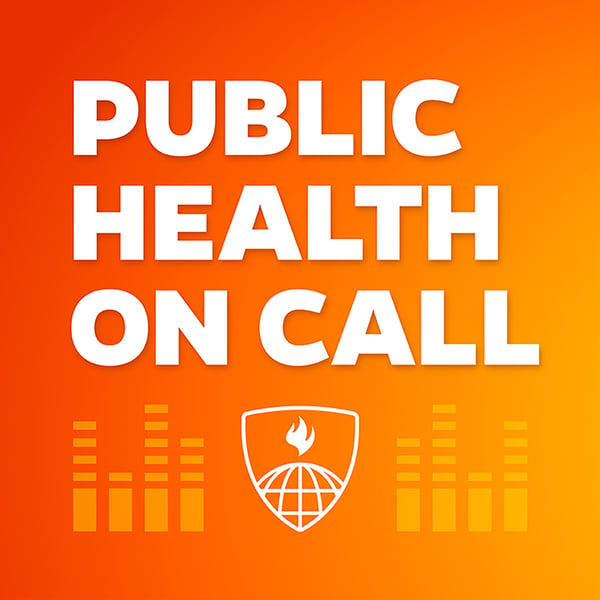BONUS - The Case For Planetary Health—Can We Change?
Public Health On Call
The Johns Hopkins Bloomberg School of Public Health
4.8 • 620 Ratings
🗓️ 22 April 2025
⏱️ 9 minutes
🧾️ Download transcript
Summary
About this episode:
In honor of Earth Day, we bring you a special episode of Public Health On Call: an essay read by Sam Myers, director of the Johns Hopkins Institute for Planetary Health. In his essay, he explores the incredible human evolution and technological innovation that has brought us to a moment in time where our own ascendance is threatening our future well-being on this planet. It’s time to face a crucial question: Can we change?
Guest:
Sam Myers is the founding director of the Planetary Health Alliance and the faculty director at the brand new Johns Hopkins Institute for Planetary Health.
Show links and related content:
-
The Case for Planetary Health (essay)—Hopkins Bloomberg Public Health Magazine
Transcript information:
Looking for episode transcripts? Open our podcast on the Apple Podcasts app (desktop or mobile) or the Spotify mobile app to access an auto-generated transcript of any episode. Closed captioning is also available for every episode on our YouTube channel.
Contact us:
Have a question about something you heard? Looking for a transcript? Want to suggest a topic or guest? Contact us via email or visit our website.
Follow us:
-
Here's our RSS feed
Note: These podcasts are a conversation between the participants, and do not represent the position of Johns Hopkins University.
Transcript
Click on a timestamp to play from that location
| 0:00.0 | It's Lindsay Smith Rogers. In honor of Earth Day, we bring you a special episode of Public Health on call, an essay read by Sam Myers, director of the Johns Hopkins Institute for Planetary Health. |
| 0:12.9 | In his essay, which was adapted from The Wings of Herons, a book series by the Constellation Project, he explores the incredible human evolution and technological |
| 0:23.4 | innovation that has brought us to a moment in time where our own ascendance is threatening |
| 0:29.6 | our future well-being on this planet. |
| 0:32.6 | He asks a crucial question, can we change? |
| 0:37.2 | Let's listen. |
| 0:37.6 | We find. We find ourselves |
| 0:52.3 | in one of history's greatest dramas. |
| 0:56.0 | The story began when a trick of evolution allowed a lone ape species to develop an exceptionally large and complex brain. |
| 1:06.0 | These brains have allowed us to bend nature toward our will, |
| 1:10.0 | unlocking an abundance of energy and resources that have fueled almost unimaginable improvements in human development. |
| 1:19.7 | In the last 75 years alone, life expectancy nearly doubled, |
| 1:25.7 | and child mortality and extreme poverty fell by a factor of five. |
| 1:32.3 | But the same advances in science and technology that drove these gains |
| 1:37.3 | are also accelerating our destruction of nature. |
| 1:42.3 | To feed ourselves, we claim 40% of the world's land surface and nearly half its accessible |
| 1:50.0 | fresh water. |
| 1:52.0 | We have felled half the planet's temperate and tropical forests. |
| 1:57.0 | Pollution from our enterprises contaminates air, water, and soil, and we're changing the planet's |
| 2:04.2 | climate at a critical pace. Two-thirds of the birds, reptiles, amphibians, fishes, and mammals |
| 2:14.2 | that used to share the planet with us are gone. |
| 2:18.3 | A million species face extinction, many within the next several decades. |
... |
Please login to see the full transcript.
Disclaimer: The podcast and artwork embedded on this page are from The Johns Hopkins Bloomberg School of Public Health, and are the property of its owner and not affiliated with or endorsed by Tapesearch.
Generated transcripts are the property of The Johns Hopkins Bloomberg School of Public Health and are distributed freely under the Fair Use doctrine. Transcripts generated by Tapesearch are not guaranteed to be accurate.
Copyright © Tapesearch 2025.

